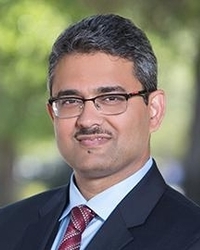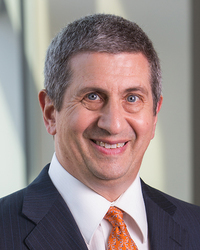Academic Keynote by Professor Amit Seru
Modern Banking System: Implications for Stabilization Policies
In this keynote, Professor Amit Seru will discuss important changes in the banking system that have occurred over the last decade. He will also describe why these changes have important implications for pass-through of stabilization policies, including those passed in response to COVID-19, to the real economy.
2021
"Modern Banking System: Implications for Stabilization Policies"
Speakers
-

Professor Amit Seru
The Steven and Roberta Denning Professor of Finance, Senior Fellow of Hoover Institution, Senior Fellow of Stanford Institute for Economic Policy Research, Stanford University & Senior Fellow of ABFER
Amit Seru is the Steven and Roberta Denning Professor of Finance at the Stanford Graduate School of Business, a Senior Fellow at the Hoover Institution and Stanford Institute for Economic Policy Research (SIEPR), and a Research Associate at the National Bureau of Economic Research (NBER). He was formerly a faculty member at the University of Chicago’s Booth School of Business.
Professor Seru’s primary research interest is in corporate finance. He is interested in issues related to financial intermediation and regulation, interaction of internal organization of firms with financing and investment, and incentive provision in firms. His papers in these areas have been published in several journals, including, the American Economic Review, the Quarterly Journal of Economics, the Journal of Political Economy, the Journal of Finance, the Journal of Financial Economics, and the Review of Financial Studies. He is a co-editor of the Journal of Finance and an Associate Editor of the Journal of Political Economy. He was previously Editor of Review of Corporate Finance Studies and a Department Editor (Finance) of Management Science. His research has been featured in major media, including the Wall Street Journal, the New York Times, the Financial Times and the Economist.
Seru earned a B.E. in electronics and communication and an MBA from the University of Delhi. Subsequently, he received a PhD in finance from the University of Michigan before. He was a senior consultant at Accenture before pursuing his Ph.D. Seru was the recipient of a Rackham Pre-Doctoral Fellowship at University of Michigan and received a Lt. Governor’s gold medal for overall academic excellence at the University of Delhi. -

Professor Andrew K. Rose
Dean of NUS Business School, National University of Singapore & Senior Fellow of ABFER
Andrew K Rose is Dean of NUS Business School. He is also a Research Associate of the National Bureau of Economic Research (based in Cambridge, MA), a Research Fellow of the Centre for Economic Policy Research (based in London, England), and a Senior Fellow of the Asian Bureau of Finance and Economic Research (based in Singapore). He received his PhD from the Massachusetts Institute of Technology, his MPhil from Nuffield College, University of Oxford, and his BA from Trinity College, University of Toronto.
Dean Rose has published over 150 papers and over 90 articles in refereed economics journals, including the American Economic Review, the Quarterly Journal of Economics, the Review of Economic Studies, and the Journal of Finance. His research addresses issues in international trade, finance, and macroeconomics, and has received more than 40,000 citations. His teaching is in the areas of international macroeconomics; he has won two teaching awards.
Prior to joining NUS, Dean Rose served as Associate Dean for Academic Affairs and Chair of the Faculty 2010-2016 at Berkeley’s Haas School of Business, and was the managing editor of the Journal of International Economics 1995-2001. He was the founding director of the Clausen Center for International Business and Policy at Haas and the Risk Management Institute at the National University of Singapore. He has organised over 50 academic conferences.
Dean Rose is interested in the theory and practice of economic policy, and most of his work is applied and driven by “real world” international phenomena. He has worked on six continents and at a number of international economic agencies, including: the International Monetary Fund, the World Bank, and the Asian Development Bank. He has also worked at a number of national agencies, central banks and universities, including Australia, Canada, England, Europe, Hong Kong, Singapore, and the United States.
- 1
Supported by

